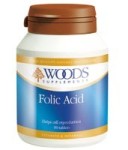
Food & Drink
Drinking extra milk as a teen may not mean hip fracture benefits later
Doubt has been cast on the theory that drinking plenty of milk early in life can help people avoid bone fractures later down the line in a large US study published in JAMA Pediatrics.
The association between teenage milk consumption and risk of hip fracture at older ages was examined in a study of more than 96,000 people with a follow-up of over 22 years.
There was no link between teenage milk consumption levels and hip fracture frequency in women. But men who drank a lot of milk between 13 years and 18 years actually saw an increased risk of hip bone injuries. Every additional glass of milk per day as a teenager was associated with a 9% higher risk among males. The association was influenced by height.
“We did not see an increased risk of hip fracture with teenage milk consumption in women as we did in men,” says Dr Diane Feskanich, who led the work. “One explanation may be the competing benefit of an increase in bone mass with an adverse effect of greater height.
“Women are at higher risk for osteoporosis than men, hence the benefit of greater bone mass balanced the increased risk related to height.”
The message is that drinking milk during adolescence is recommended to achieve peak bone mass, but it can lead to greater height too, which is a risk factor for hip fracture.
More research is on the menu
To read the original research visit http://archpedi.jamanetwork.com/article.aspx?articleid=1769138.
Low folic acid limits methotrexate success in rheumatoid arthritis

People with rheumatoid arthritis who have lower levels of folic acid may have less successful outcomes when they’re taking methotrexate, says research published in Arthritis and Rheumatism.
Folic acid is usually taken with methotrexate to reduce side-effects such as nausea. But now a study of nearly 400 people has found that when people take lower levels of folic acid, the effectiveness of methotrexate is limited. Continue reading
Combined diet and exercise improves knee osteoarthritis
People with knee osteoarthritis who are overweight and obese could benefit more from combined intensive exercise and diet rather than one or the other, says research published in the Journal of the American Medical Association.
A US team looked at 399 people with knee osteoarthritis who were overweight and obese and aged over 54 years. Volunteers were split into three groups: diet and exercise; diet only or exercise only. Continue reading
Broccoli, cabbage and Brussels sprouts may slow arthritis
Eating broccoli, cabbage and Brussels sprouts could slow down and even prevent osteoarthritis, says UK research published in Arthritis and Rheumatism. Lab tests and others on mice have revealed that a compound – sulforaphane – found in the vegetables can block a destructive enzyme that damages cartilage.
Human trials are due to begin, which will see 20 people eating broccoli that is extra rich in nutrients every day for two weeks. The volunteers’ knees will then be operated on to examine if sulforaphane has travelled to where it is needed in the joint and is causing beneficial changes at the cellular level. Continue reading
Lack of public awareness about bone health in the UK
A poor understanding of bone health and how to reduce the risk of osteoporosis exists in the UK according to a recent poll of 1,000 women.
The survey of women aged 25 to 65 years shows that 96% had no idea how much calcium or vitamin D is needed in a weekly diet to help protect bone health.
Half of respondents had no idea that osteoporosis is associated with menopause. About 70% of participants said they do not eat enough oily fish to keep their bones and joints in optimal health. Less than 20% took supplements for their bones, relying on their diet without understanding what they needed to eat. Continue reading
